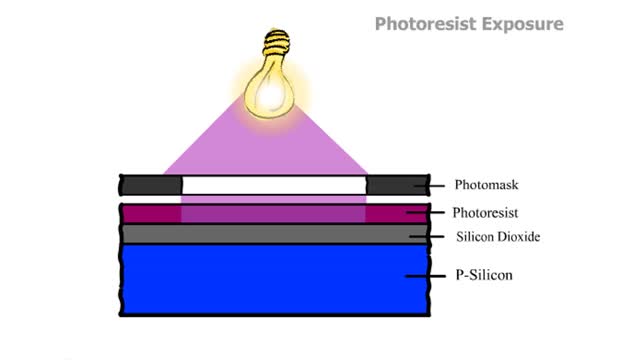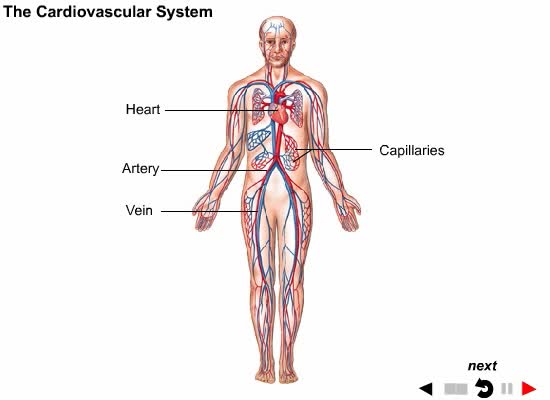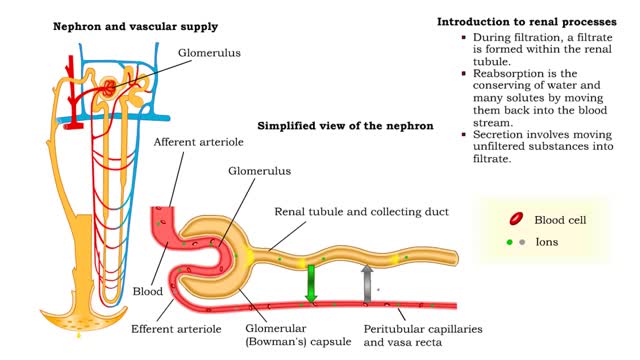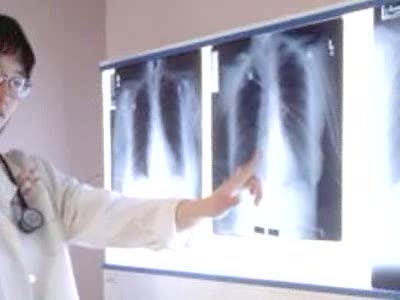Search Results
Results for: 'Introduction to Photolithography'
Introduction to Photolithography - WC, BLF, PA, Hard and Soft baking
By: HWC, Views: 11195
Prior to use, wafers are chemically cleaned to remove particulate matter on the surface as well as any traces of organic, ionic, and metallic impurities. Barrier Layer Formation After cleaning, the silicon wafer is covered with the material which will serve as a barrier layer. The most commo...
Introduction to Body Systems Animation
By: Administrator, Views: 963
Systems: A group of different organs functioning together for a common purpose.
Carbohydrate Metabolism: Introduction to renal processes and filtrate formation and composition
By: HWC, Views: 11877
• At the nephron, the three process responsible for the formation of urine include: • Glomerular filtration. • Tubular reabsorption. • Tubular secretion. • During filtration, a filtrate is formed within the renal tubule. • Reabsorption is the conserving of water and many s...
By: Administrator, Views: 14458
Tuberculosis (TB) is an infectious disease usually caused by Mycobacterium tuberculosis (MTB) bacteria. Tuberculosis generally affects the lungs, but can also affect other parts of the body. Most infections do not have symptoms, in which case it is known as latent tuberculosis. https://www.ppd...
By: Administrator, Views: 14762
Cardiac dysrhythmias are a problem with the rate or rhythm of your heartbeat caused by changes in your heart’s normal sequence of electrical impulses. Your heart may beat too quickly, called tachycardia; too slowly, bradycardia; or with an irregular pattern. Dysrhythmias can range from complete...
By: Administrator, Views: 14577
Apnea is the cessation of breathing. During apnea, there is no movement of the muscles of inhalation, and the volume of the lungs initially remains unchanged. Depending on how blocked the airways are (patency), there may or may not be a flow of gas between the lungs and the environment; gas excha...
By: Administrator, Views: 15062
A heart attack occurs when an artery supplying your heart with blood and oxygen becomes blocked. Fatty deposits build up over time, forming plaques in your heart's arteries. If a plaque ruptures, a blood clot can form and block your arteries, causing a heart attack.
By: Administrator, Views: 14809
Spirometry is a common test used to assess how well your lungs work by measuring how much air you inhale, how much you exhale and how quickly you exhale. Spirometry is used to diagnose asthma, chronic obstructive pulmonary disease (COPD) and other conditions that affect breathing
Introduction to Cystic Fibrosis
By: Administrator, Views: 14742
Cystic fibrosis (CF) is a genetic disorder that affects mostly the lungs, but also the pancreas, liver, kidneys, and intestine. Long-term issues include difficulty breathing and coughing up mucus as a result of frequent lung infections. Other signs and symptoms may include sinus infections, poor ...
Advertisement











